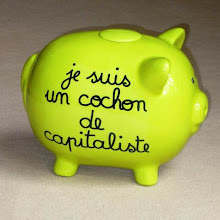
Edmond Burke was an Irish whig member of the British parliament. He is famous for his support to the American colonies against Georges III and his opposition to the French revolution. He published his “Reflections on the revolution in
Burke considered that the American revolution was a fight to preserve the existing tradition of autonomy and freedom of the colonies. It is therefore pragmatic because its foundations are based on concrete customs that people have long been used to. On the other hand, the French revolution is a radical change compared with the old regime, based on a purely philosophical theory with no consideration for political and social contingencies.
Because philosophy is not concerned with real matters but only with ideas, Burke contends that it should be limited to scholars. Politicians, on the other hand, must deal with thousands of immediate details, and should therefore act pragmatically and not upon theoretical arguments or principles. When this principle is violated, the resulting radical changes can lead to extreme consequences.
Therefore, Burke advocates what he calls natural rights, which are the prevailing rights based on customs and traditions, instead of what other philosophers have developed as natural rights but which he labels abstract rights. The statesman cannot be guided by abstract principles, because these do not allow compromise, balance and middle grounds, which are the essence of politics. When people get caught into their theories, they forget man’s nature and become indifferent to his sufferings, will not back before any bloodshed.
He is also very critical of democracy, because the power of a whole people is not checked, whereas the power of a sovereign is necessarily limited. He finds that politics is not a matter of arithmetics – addition of millions of voices – and the will of the many can often be opposed to their interest, more so because the common man is generally ignorant about matters of government. The will of the individual, which he criticizes, is solitary and selfish, and should not replace the social will enbodied by law and custom.
Prescriptive rights are passed on from one generation to the next, and marginally improved at each stage. This only preserves social order. In the same way that he had argued that no one can be argued into slavery, Burke considers that freedom can only be the result of this long social process. He predicted that the French revolution would end in chaos and violence. Tradition restrains the destructive passions of men, and especially those of rulers. He does not deny that monarchy, aristocracy and clergy abused their power, but he fears that revolutionaries will make matters worse by destroying traditions.
In a famous passage, he refers to the return of Louis XVI and Marie-Antoinette. He enrages that “sophisters, economists and calculators” have extinguished loyalty and submission to these characters, and therefore led to the collapse of the institution which they represent and which he admires immensely: chivalry. The revolutionnaries claimed to be restricting the power of the monarchy. But intentions and results are two separate things. Power will always exist, and someone will always wield it. Tradition can put a check on the tyrant’s power, abstractions cannot. When all opinions, instincts and prejudices have been wiped out, any outbreak of violence can be stopped only by the army.
This all must be placed in the context of the late eighteenth century in

Aucun commentaire:
Enregistrer un commentaire